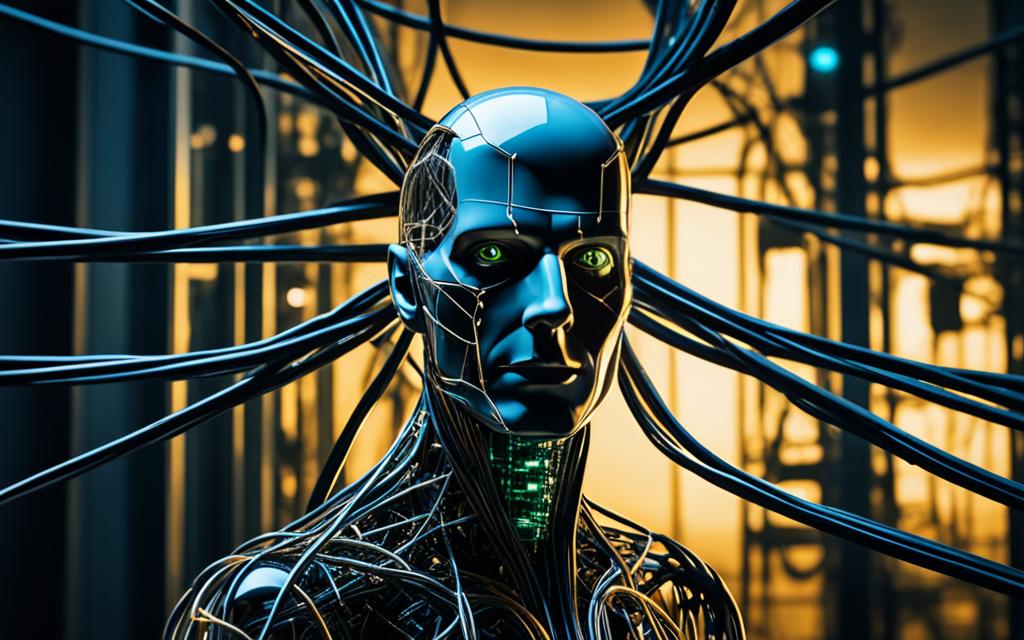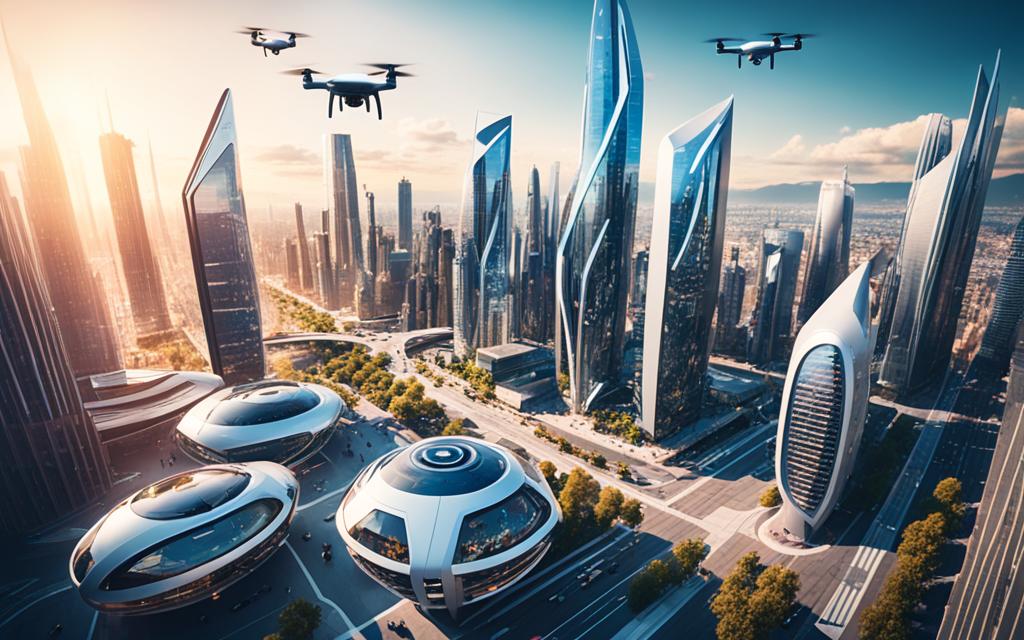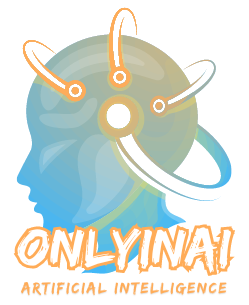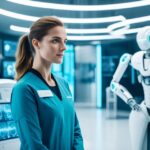In 2022, a huge 92 million American workers got flexible work options. Out of these, 80 million chose this new way of working. This big change in how we work is just the start of what’s happening in the AI age.
AI is changing many industries, making companies and workers face big changes. The World Economic Forum says AI will change 85 million jobs worldwide by 2025. This big change is happening in at least 15 industries, changing how we work and live.
We need to adapt to these new changes. Technology and new work settings require us to be proactive. It’s important for both companies and people to understand and accept these changes in the AI age. This is key to doing well in today’s work world.
Key Takeaways
- 92 million American workers offered flexible work arrangements
- 80 million workers engaged in flexible work models
- AI automation projected to disrupt 85 million jobs globally by 2025
- At least 15 industries affected by workplace automation
- Active adaptation crucial for navigating AI-driven changes
- Reimagined work environments reshaping traditional workplace norms
The Dawn of AI Revolution: Transforming Business Landscapes
The AI revolution is changing how businesses work, create new things, and compete. With tech changing fast, companies need to keep up to stay ahead in this new era.
Ubiquity of AI in Modern Business
AI is now a key part of business in many fields. It helps with customer service and predicting trends, making things more efficient and innovative. Companies using AI make better decisions and give customers a better experience.
The Imperative of Staying Ahead with Tech Trends
It’s important for businesses to keep up with tech trends. Using AI and machine learning gives companies an edge. They can predict market changes, run better, and create new products and services.
| AI Application | Business Impact |
|---|---|
| Predictive Analytics | Improved forecasting and decision-making |
| Chatbots | Enhanced customer service and engagement |
| Process Automation | Increased efficiency and cost reduction |
Koneqt: A Beacon in the AI Transformation
Koneqt is a leader in helping businesses use AI. They know a lot about AI, machine learning, and making companies more digital. Koneqt uses the latest tech and smart strategies to help businesses use AI fully.
“The AI revolution demands courage, adaptability, and innovative thinking. Companies that embrace these qualities will thrive in the new business landscape.”
As the AI revolution grows, businesses need to be ready to use new tech and change how they work. The future is for those who can use AI’s power to grow and innovate.
Redefining Work in the Age of Automation
The workplace is changing fast. AI and automation are reshaping how we work. This shift brings both challenges and opportunities. As machines take on routine tasks, human roles are evolving.
AI workforce transformations are creating new job categories. Workers now focus on tasks that need human touch. These include creative thinking, problem-solving, and emotional intelligence. The key is adapting to these changes.
Automation job losses are a real concern. Yet, they’re only part of the story. For every job lost, new ones emerge. The trick is to prepare for these new roles. This means ongoing learning and skill development.
“The future belongs to those who learn more skills and combine them in creative ways.” – Robert Greene
Let’s look at how different industries are adapting:
| Industry | AI Impact | New Skills Needed |
|---|---|---|
| Manufacturing | Robotic assembly lines | Machine maintenance, data analysis |
| Healthcare | AI-assisted diagnostics | AI interpretation, patient care |
| Finance | Automated trading | Risk assessment, client relations |
The future of work is a blend of human and machine capabilities. By embracing this change, we can create a more efficient and fulfilling work environment. The key is to stay adaptable and keep learning.
AI-Driven Efficiency: Beyond Speed and Automation
AI is changing the modern workplace in big ways, not just making things faster. It’s changing how we work, making us more productive, and opening new doors in many fields.
AI’s Role in Enhancing Workplace Productivity
AI tools are making work better by making tasks easier and smarter. They automate routine work and give us insights from data. This lets workers focus on important tasks, leading to more creativity and growth.
Balancing AI and Human Ingenuity
Finding the right mix between AI and human skills is key. AI is great at handling lots of data and doing repetitive tasks. But, people are better at solving problems creatively and understanding emotions.
| AI Strengths | Human Strengths |
|---|---|
| Data processing | Creative thinking |
| Task automation | Emotional intelligence |
| Pattern recognition | Complex problem-solving |
Redefining Roles in a Hybrid Work Environment
AI is changing how we work together, especially with more people working from home. It helps us talk and work together better. This leads to more flexibility, better work-life balance, and happier workers.
“AI is not just about replacing tasks; it’s about augmenting human capabilities and creating new opportunities for growth and innovation in the workplace.”
By using AI and changing how we work, companies can make a better, more productive place for everyone. This helps both workers and employers in our digital world.
The Human Element: Irreplaceable Core in AI Age
In today’s AI era, human creativity is more valuable than ever. AI is great at handling lots of data and doing repetitive tasks. But, it can’t match the human touch in creativity, empathy, and solving complex problems.
AI and humans working together is where the magic happens. This partnership lets people focus on creative, strategic, and people skills. By giving AI routine tasks, humans can spend more time on thinking creatively and using their emotional smarts.
“AI is not here to replace us, but to enhance our capabilities and free us to do what we do best – innovate and create.”
Let’s see how human creativity and AI work together in different areas:
| Field | AI Contribution | Human Ingenuity |
|---|---|---|
| Healthcare | Rapid diagnosis, data analysis | Empathetic patient care, complex decision-making |
| Art and Design | Generating variations, technical assistance | Conceptual thinking, emotional expression |
| Business Strategy | Market trend analysis, predictive modeling | Intuitive leadership, innovative problem-solving |
As we move forward with AI, it’s key to value the unique human touch. By supporting both tech progress and human creativity, we can make a future where AI helps us, not replaces us.
Power Shifts in AI Age: Navigating Workforce Transformations
The AI revolution is changing job markets and what skills are needed fast. It’s important for employers and employees to understand this change.
AI’s Impact on Job Markets and Skill Demands
AI is making big changes in the job world. Some jobs might not be needed anymore, but new ones will come up. We need to plan our careers and learn new skills.
Adapting to AI-Induced Changes in Employment
We must act fast to keep up with AI changes. Workers should keep learning new things to stay in the game. Companies should also look at what skills they need and help their workers grow.
Strategies for Workforce Upskilling and Reskilling
Upskilling and reskilling are vital in the AI era. Companies should put money into training that teaches how to work with AI. Workers can also look for online courses, workshops, and certifications to get better at their jobs.
| Reskilling Strategy | Benefits |
|---|---|
| AI-focused training programs | Improved job security, increased productivity |
| Cross-functional skill development | Enhanced adaptability, broader career options |
| Continuous learning culture | Innovation boost, competitive edge |
By using these strategies, both people and companies can make the most of the AI change. It can lead to growth and new ideas.
Ethical Implications and AI Governance Challenges

AI is changing the way we work, bringing up big ethical questions. Companies need to make sure their AI is clear and fair. They must have strong rules and checks to keep human values safe at work.
There are big challenges in managing AI in companies. Leaders must find a balance between using AI and making human decisions. This balance keeps the unique human touch while using AI’s power.
“With great power comes great responsibility. As AI grows more capable, our ethical frameworks must evolve to match.”
Many companies are setting up AI ethics boards to tackle these issues. These boards watch over how AI is used and make rules to prevent harm. Their efforts are key to keeping trust in AI and making sure it helps society.
| AI Ethical Concern | Governance Solution |
|---|---|
| Bias in AI algorithms | Diverse data sets and regular audits |
| Privacy violations | Strict data protection policies |
| Job displacement | Reskilling programs and transition support |
| Lack of transparency | Explainable AI initiatives |
Dealing with AI’s challenges requires teamwork between tech experts, ethicists, and policymakers. Together, we can make a future where AI boosts human potential at work.
Leadership in the AI Era: Embracing Adaptability
The AI revolution calls for a new type of leader. These leaders must navigate the fast-changing tech world and lead their teams to success. Being adaptable is crucial in this AI-driven era.
Characteristics of Adaptable Leadership
Adaptable leaders love change. They see challenges as chances to grow. They welcome new ideas and encourage innovation. They’re not scared to take smart risks and learn from mistakes.
Empowering Teams in an AI-Driven Environment
Empowering teams is key today. Leaders who trust their workers and give them freedom get better results. This approach boosts creativity and productivity in an AI world.
| Traditional Leadership | Adaptable Leadership |
|---|---|
| Top-down decision making | Collaborative problem-solving |
| Rigid hierarchy | Flexible team structures |
| Risk-averse | Embraces calculated risks |
| Slow to change | Quick to adapt |
Fostering a Culture of Continuous Learning
In the AI era, learning is ongoing. Adaptable leaders make sure their teams keep learning. They support skill growth and offer resources for development. This keeps teams competitive and ready for the future.
“The capacity to learn is a gift; the ability to learn is a skill; the willingness to learn is a choice.”
Adaptable leadership, empowering teams, and continuous learning are key for success in our AI world. Leaders who excel in these areas will lead their organizations to new heights in the AI age.
Cultivating Innovation and Adaptability in Organizations

In today’s AI world, being innovative is crucial to stay ahead. Companies need to make spaces that spark creativity and encourage trying new things. This way, new ideas grow and being adaptable comes easily.
To do this, businesses can:
- Embrace diverse perspectives
- Nurture a growth mindset
- Promote cross-functional collaboration
- Support flexible working styles
These steps help build a strong team ready for innovation in our digital world. By using technology and staying connected, teams can quickly adjust to changes and grab new chances.
“Innovation distinguishes between a leader and a follower.” – Steve Jobs
Being adaptable in the AI era means more than just keeping up with tech. It’s about making a space where people feel free to think differently and take smart risks. When workers share their ideas openly, big innovations can happen.
| Traditional Approach | Innovative Approach |
|---|---|
| Rigid hierarchies | Flat structures |
| Fixed work hours | Flexible schedules |
| Siloed departments | Cross-functional teams |
| Risk-averse culture | Calculated risk-taking |
By promoting innovation and adaptability in the AI era, companies can turn challenges into chances for growth and success.
AI’s Economic Impact: Reshaping Industries and Business Models
AI is changing our economy, making industries new and creating new ways to do business. This change is as big as the Industrial Revolution, changing how we work and how efficient we are.
AI as a Force Multiplier for Productivity
AI makes us work smarter, not harder. It helps people in coding, marketing, law, and healthcare do more with less. What used to take a team can now be done by one person.
Transformations in Key Sectors
AI is changing finance, healthcare, and tech in big ways. In finance, AI helps pick investments and figure out risks. In healthcare, it makes diagnosing and finding new drugs better. Tech uses AI to make products better and create new ones.
Emerging Business Opportunities in the AI Landscape
AI is opening up new chances for businesses. Companies making AI tools, data analysis firms, and AI consultants are growing fast. There’s a big demand for AI products and services, creating a new market full of possibilities for both new and old businesses.
AI isn’t just for big tech companies. Small and medium-sized businesses are finding their place in AI, like in developing AI apps, training machine learning models, and integrating AI services. The impact of AI is bringing a new wave of innovation and competition to all industries.
Navigating Privacy Concerns and Data Security in AI Age
The rise of AI offers big opportunities but also brings big challenges. Businesses using AI must deal with new privacy and security issues. They need to be careful and take steps to protect data.
Protecting privacy in the AI age means doing many things at once. Companies should use strong data encryption and control who can access information. They also need to check their security often and be open about how they make decisions with AI.
Following the law is a must, especially with rules like GDPR and CCPA. Companies must keep up with legal changes and change their ways if needed. They should ask for clear consent before collecting data and let users control their info.
“Balancing AI innovation with individual privacy rights is the cornerstone of ethical AI development.”
To handle AI privacy issues well, businesses should:
- Do regular checks to see how privacy might be affected
- Make privacy a key part of designing AI systems
- Have clear privacy policies that are easy to understand
- Train employees on how to protect data
Putting data security and privacy first helps build trust with customers and others. Trust is key for the success and wide use of AI in different fields.
Conclusion: Embracing the AI-Powered Future
The AI revolution is changing our work world fast. It’s more than just a buzzword; it’s a big change across many industries. As we move into this AI-powered future, we must be ready for big changes in our work and thinking.
AI won’t replace all jobs right away, but it’s already making a difference. For those who work with knowledge, using AI’s power is crucial to stay ahead. We’re heading towards a world where humans and machines work together, each using their best skills.
To do well in this new world, we must keep learning and adapting. Adapting to technology is essential. By staying curious, innovative, and open to change, we can navigate the AI wave. The future of work is here, and it’s powered by AI. Are you ready to embrace it?


